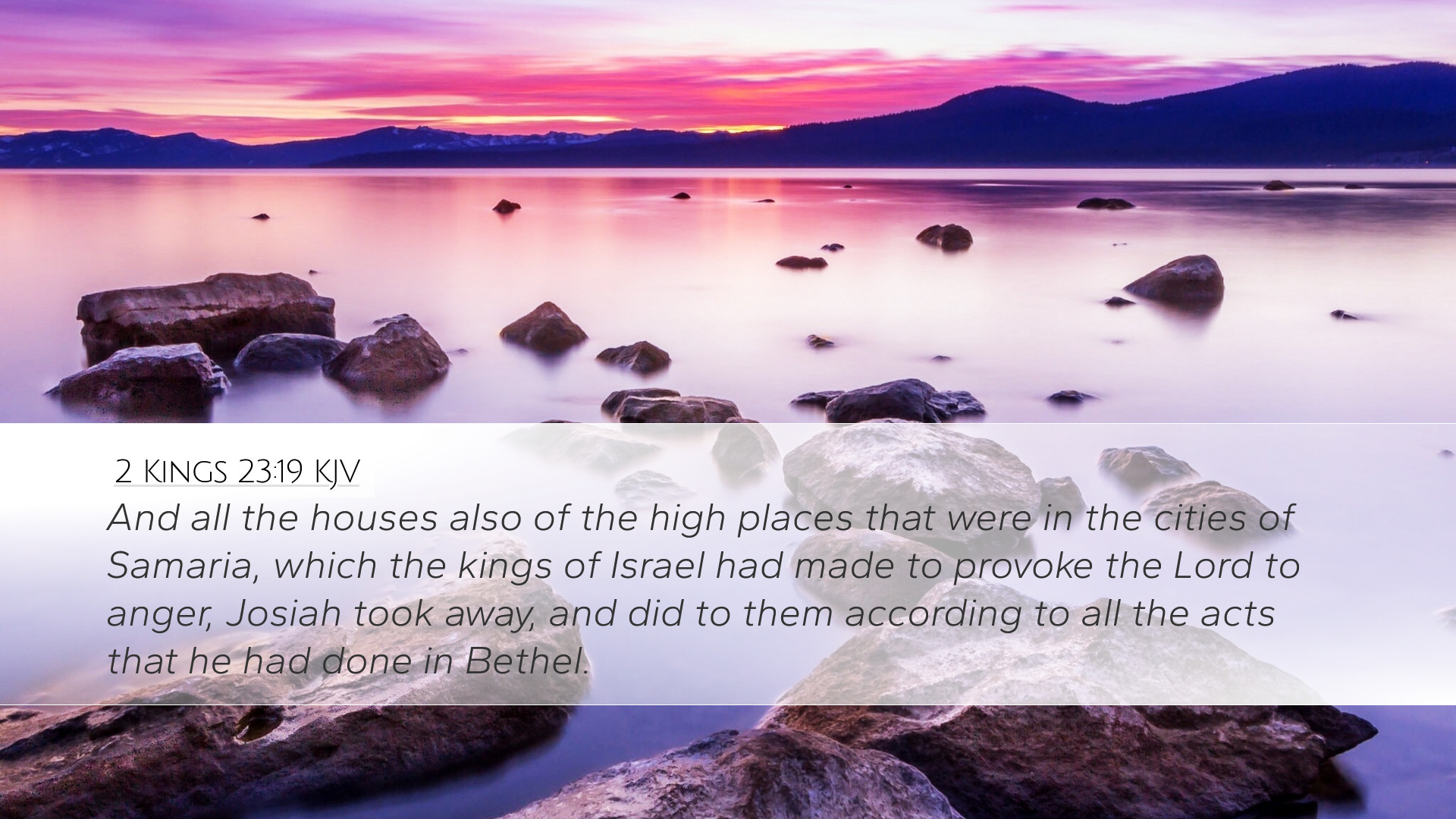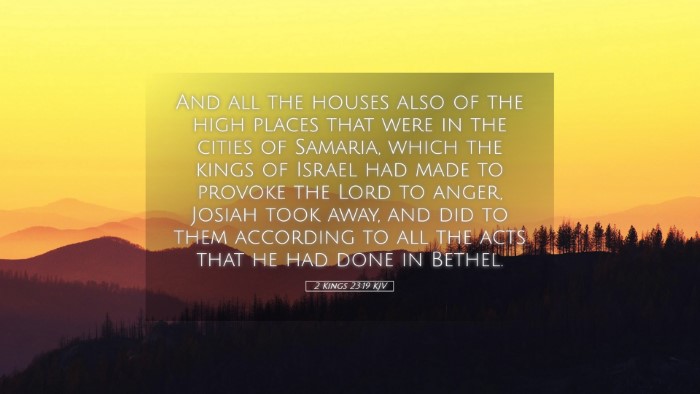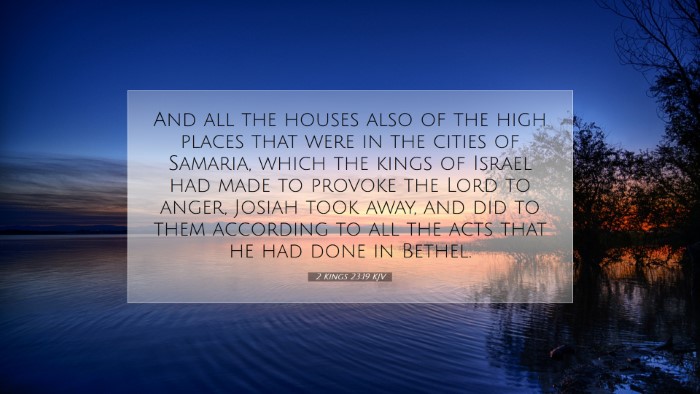Commentary on 2 Kings 23:19
Verse Reference: 2 Kings 23:19 states, “And also all the shrines of the high places that were in the cities of Samaria, which the kings of Israel had made to provoke the Lord to anger, Josiah took away, and did to them according to all the acts that he had done in Bethel.”
This verse highlights the significant religious reforms initiated by King Josiah, shedding light on the thematic elements of idolatry, divine judgment, and covenant faithfulness central to the Old Testament narrative.
Contextual Background
The narrative preceding this verse documents the discovery of the Book of the Law in the Temple during Josiah’s reign (2 Kings 22). This discovery catalyzes a profound spiritual awakening and a national renewal, leading Josiah to reorient Judah’s worship practices. Understanding the socio-political and religious landscape of ancient Israel is essential for grasping the weight of Josiah’s reforms.
Thematic Elements
-
Idolatry and High Places: The high places mentioned symbolize the pervasive idolatrous practices that Israel had engaged in for years, set against God’s covenant. Matthew Henry comments on the high places as “the seats of superstition and error,” suggesting that these sites not only provoked God's anger but also distorted the worship of Yahweh.
-
Political Agency of Josiah: Josiah’s actions were both a religious and socio-political statement against the previous kings of Israel whose idolatrous practices led the nation into moral and spiritual decay. Albert Barnes emphasizes the need for reform as a necessary response to restoring true worship and societal integrity.
-
Covenantal Faithfulness: The act of removing these shrines was a tangible return to the covenantal stipulations laid out in the Torah. Adam Clarke elaborates on how Josiah’s reforms reinstated fidelity to God’s commands and sought to rectify the national sin of Israel.
Detailed Analysis
Josiah’s Motivations: Josiah’s reforms were spurred by a sincere desire to serve God. Having received the Law, he recognized the profound deviations from God’s commands that led to divine judgment (2 Kings 22:13). His decision to dismantle the high places points to a commitment to purify worship in Judah.
Provoke the Lord to Anger: The phrase “to provoke the Lord to anger” reflects the vital understanding of God's holiness and the seriousness of idolatry. As Barnes remarks, such actions were not mere acts of rebellion but transgressions that entangled the nation in covenant faithlessness and prompted divine wrath.
Josiah’s Legacy
King Josiah's efforts were pivotal in the reform and restoration of Judah’s religious life. His thorough cleansing of the land from idolatry aimed not just at physical structures, but also at the spiritual revival of the covenant community. Henry notes that Josiah was exemplary in his zeal for the Lord, positioning him as a model for leaders who wish to pursue true worship amid moral decay.
Application for Today
The principles drawn from Josiah’s actions remain relevant for contemporary faith communities.
-
Call to Reform: Believers are reminded to continuously evaluate their own practices against Scripture, uprooting any modern equivalent of “high places” that may exist within the church or personal lives.
-
Renewal of Worship: Re-establishing pure worship that aligns with God’s commands is a vital endeavor, paralleling Josiah’s mission. It serves as a holistic approach to discipleship and communal integrity.
-
Engagement with Scripture: Like Josiah, engaging earnestly with Scripture can lead to awakening and reform, driving a return to authentic faith amidst cultural distractions.
-
Leadership Accountability: Leaders within the church must take responsibility for guiding their communities toward fidelity to God, thus ensuring their ministries reflect biblical truth and piety.
-
Community Reflection: Just as Josiah reinstated the covenant, congregations are called to reflect on their collective commitments to God, adjusting practices, and fostering environments that embody spiritual fidelity.
Conclusion
2 Kings 23:19 invites readers to not only understand the historical context and implications of Josiah's reforms but also to apply these lessons toward personal and communal faithfulness. As leaders, scholars, and students of the Word, let us be inspired by Josiah’s determination to uphold God's truth amidst the challenges of contemporary spirituality.


